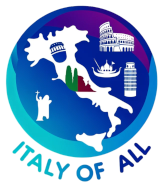The province of Ascoli Piceno, located in the Marche region of central Italy, is celebrated for its rich cultural heritage, stunning architectural landmarks, and beautiful natural landscapes. Known for its historical towns and the quality of its artisanal products, Ascoli Piceno offers a blend of tradition and natural beauty that captures the essence of Italian provincial life.
Geographically, Ascoli Piceno is characterized by a diverse landscape that ranges from the sandy beaches of the Adriatic Sea to the rugged Sibillini mountains. This varied terrain supports a mix of agricultural activities and provides numerous opportunities for outdoor recreation, from beachgoing to mountain hiking. The area is also known for its scenic beauty, including the lush Tronto river valley which cuts through the region.
Historically, Ascoli Piceno has a long and rich history that dates back to pre-Roman times. The city of Ascoli Piceno, the capital of the province, is particularly noted for its well-preserved medieval center and Roman architecture. One of the most iconic landmarks is the Piazza del Popolo, a Renaissance square that is considered one of the most beautiful in Italy. The city’s ancient history is also marked by significant Roman structures such as the Ponte di Cecco over the Tronto River.
Culturally, Ascoli Piceno boasts a vibrant local culture with deep-rooted traditions. The region is famous for its annual medieval jousting tournament, the Quintana, where riders from the city’s six districts compete in a historic setting, dressed in elaborate 15th-century costumes. The area is also known for its crafts, particularly ceramics and olive wood carvings, which reflect the artisanal skills that have been passed down through generations.
Cuisine in Ascoli Piceno is rich and varied, reflecting the agricultural bounty of both the mountains and the coastal plains. The province is famous for “Olive all’ascolana,” deep-fried olives stuffed with meat, which are a beloved local delicacy. Other specialties include hand-cut “maccheroncini di Campofilone,” a type of egg pasta, and seafood dishes along the coast. The region also produces fine wines, including Rosso Piceno and Falerio dei Colli Ascolani.
Economically, Ascoli Piceno’s economy is primarily based on agriculture, with a strong emphasis on olive oil production and viticulture. The province also benefits from a well-developed tourism sector that attracts visitors to its historical sites, festivals, and natural beauty. Additionally, small-scale manufacturing, including a focus on traditional crafts and food products, plays a crucial role in the local economy.
Despite challenges such as economic diversification beyond agriculture and tourism, Ascoli Piceno is actively engaged in preserving its cultural heritage and promoting sustainable development. Efforts to enhance local products and extend tourism beyond the peak seasons are key components of the province’s strategy for economic growth.
Overall, the province of Ascoli Piceno offers a compelling mix of historical depth, cultural richness, and natural beauty, making it an essential part of Italy’s cultural and economic landscape. Its commitment to maintaining its traditions while fostering sustainable growth ensures its continued allure and viability as a distinctive Italian province.
Comuni in Ascoli Piceno Province:
- Acquasanta Terme
- Appignano del Tronto
- Acquaviva Picena
- Ascoli Piceno
- Arquata del Tronto
- Castignano
- Castel di Lama
- Carassai
- Cupra Marittima
- Folignano
- ForceForchia
- Colli del Tronto
- Cossignano
- Comunanza
- Grottammare
- Massignano
- Maltignano
- Monteprandone
- Pedaso
- Monsampolo del Tronto
- Offida
- Montalto delle Marche
- Montedinove
- Montefiore dell’Aso
- Montemonaco
- Montegallo
- Rotella
- Ripatransone
- Roccafluvione
- San Benedetto del Tronto
- Spinetoli
- Venarotta
